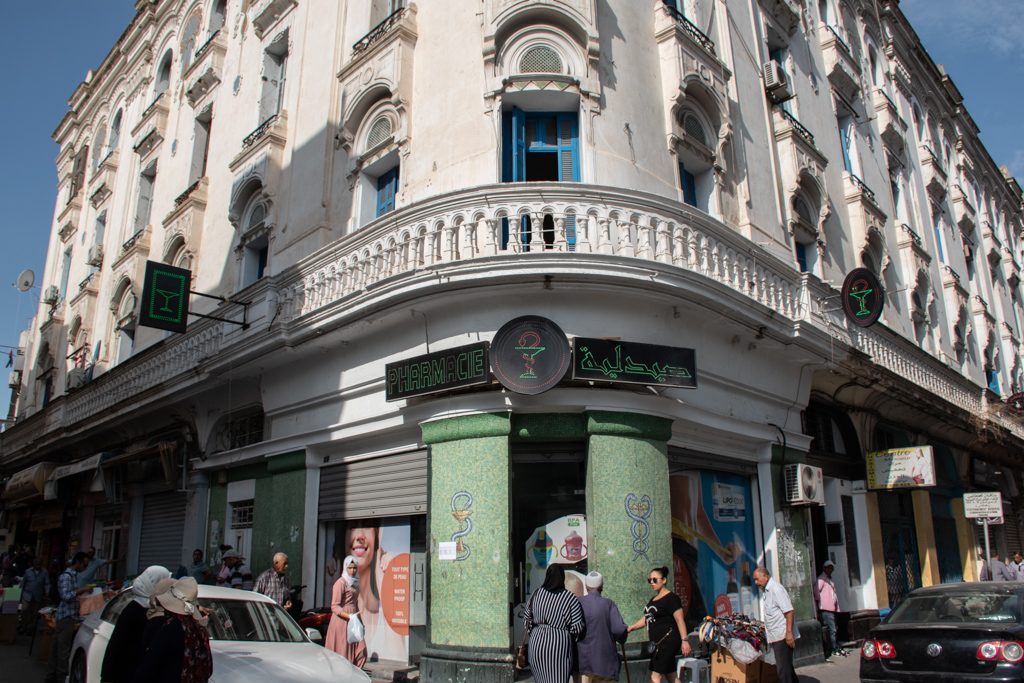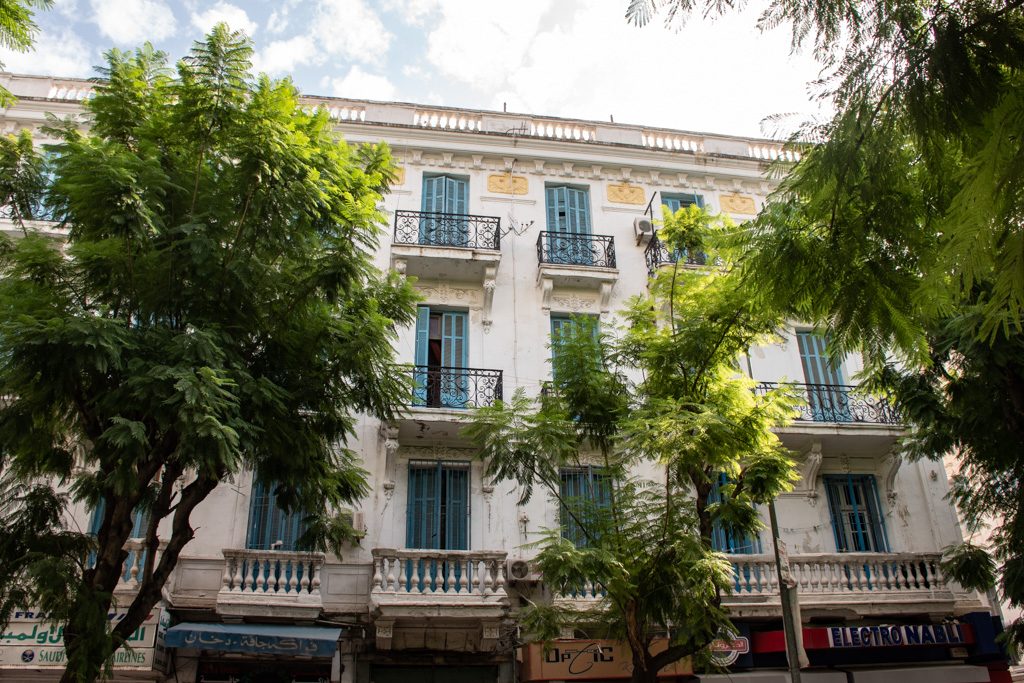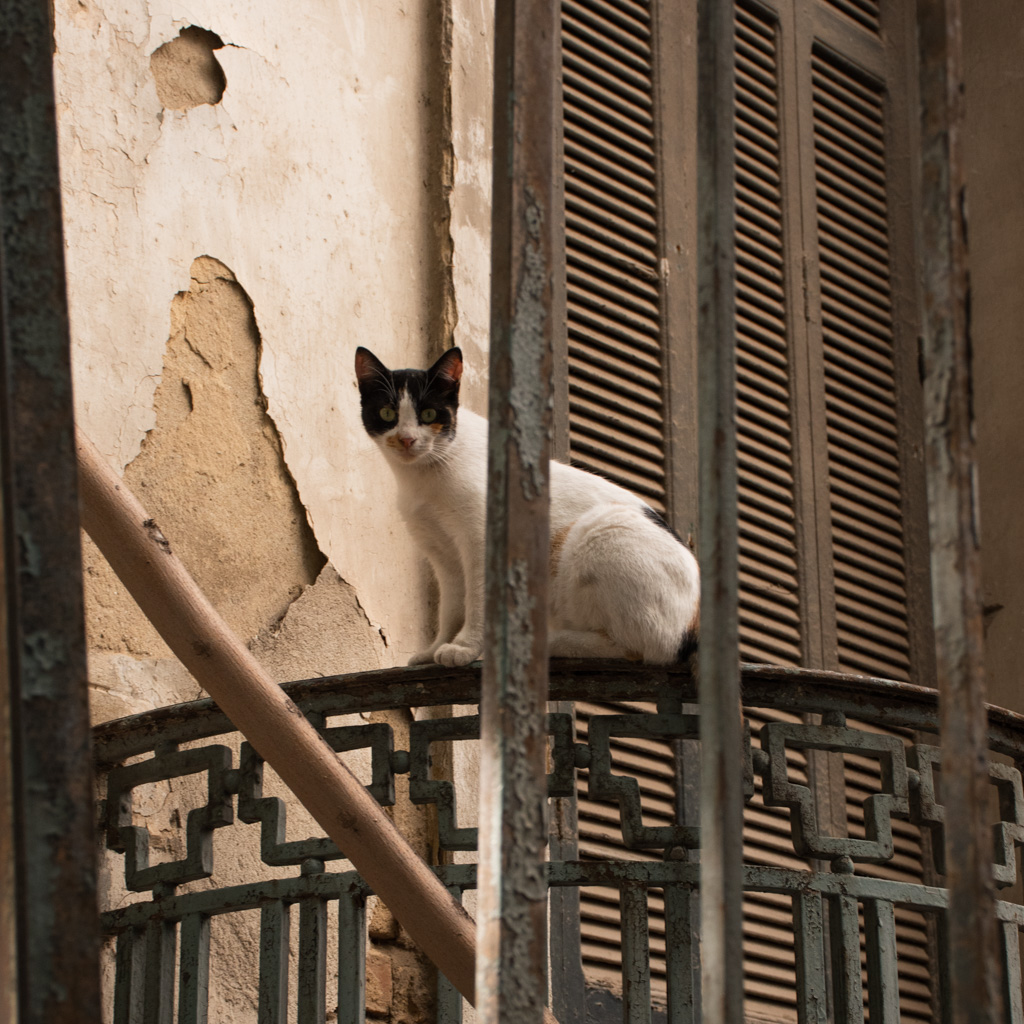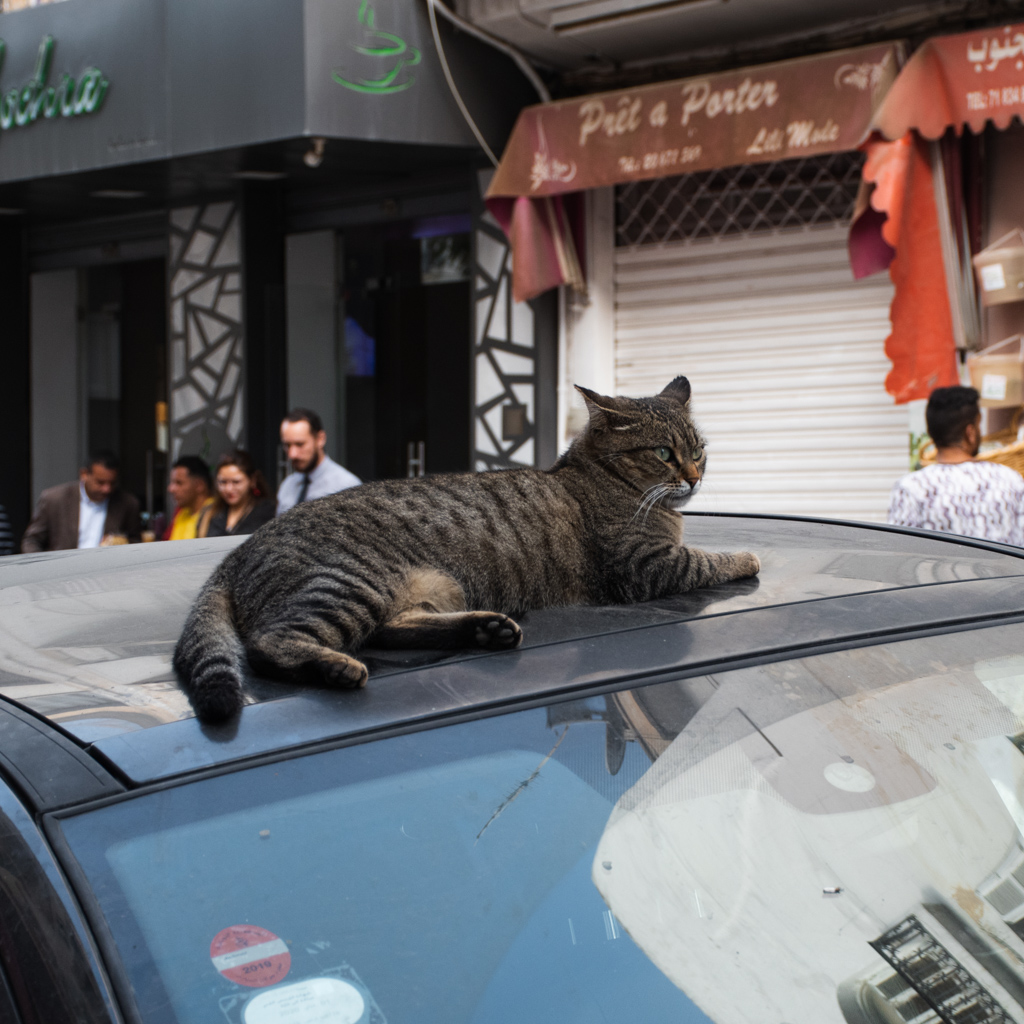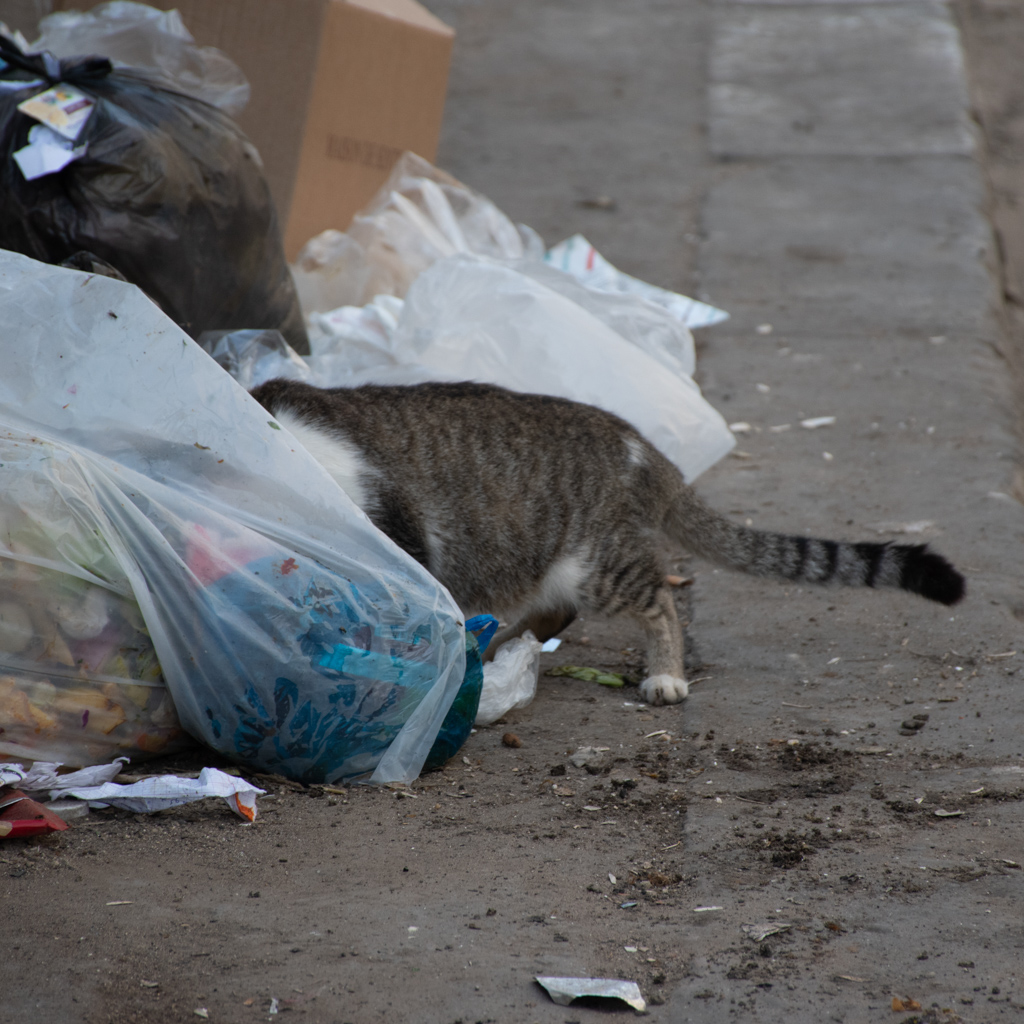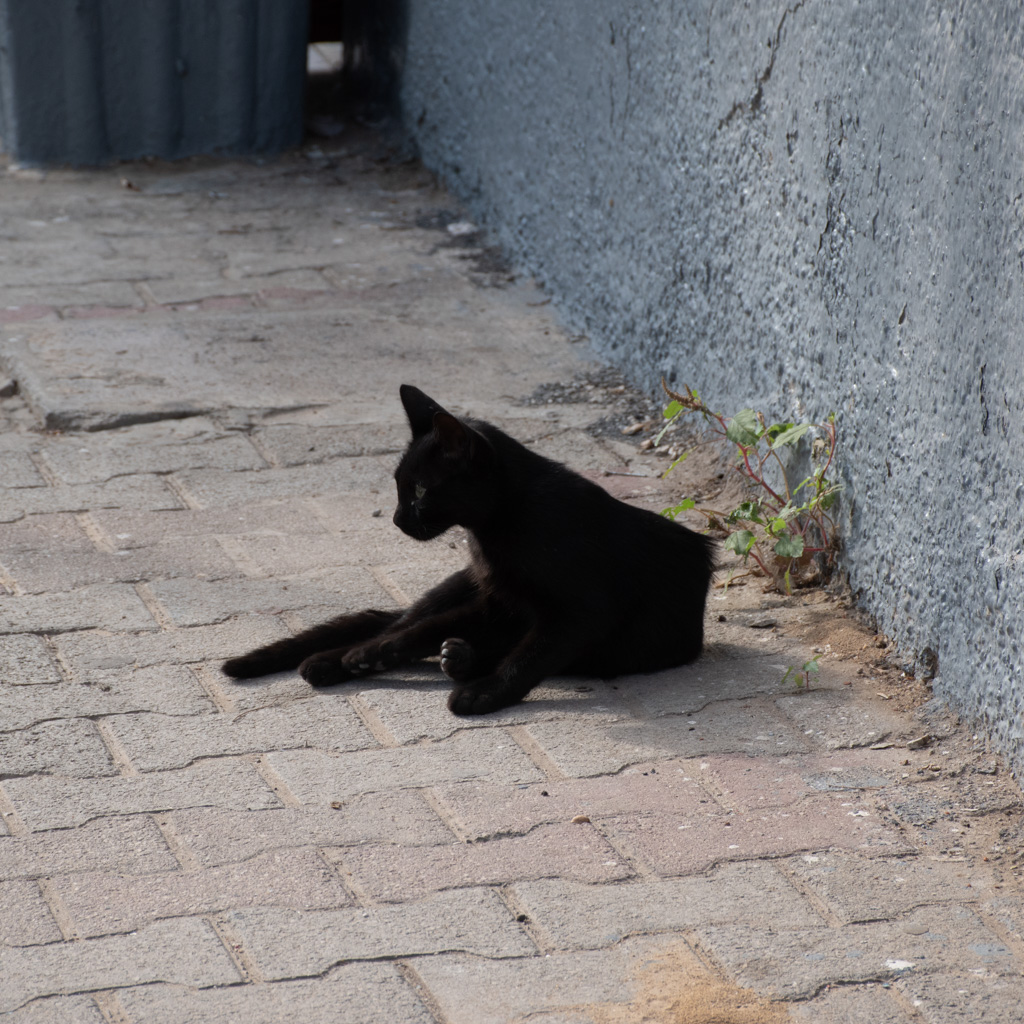First impressions
We arrived in Tunis late in the evening. The taxi (50 DT or $25 CAD) whisked us to the Ibis Hotel near the edge of the city’s core. The first thing we noticed was that we had to pass through metal detectors as we walked into the hotel. I assume that this security has been in place since the attack and hostage-taking of tourists at the Bardo Museum in 2015. That tragedy put a dent in tourism, just when Tunisia was trying hard to rebuild it after the 2011 revolution of Arab Spring.
The next morning, we set out for a walk towards the city centre. Looking around, we were reminded that this was once a French colony. French signage, wrought iron balconies and wooden shutters, and lots of concrete—it feels like France but not France.
On the side streets, most people walk on the road, alongside moving traffic. That’s probably because the sidewalks have a lot of garbage.
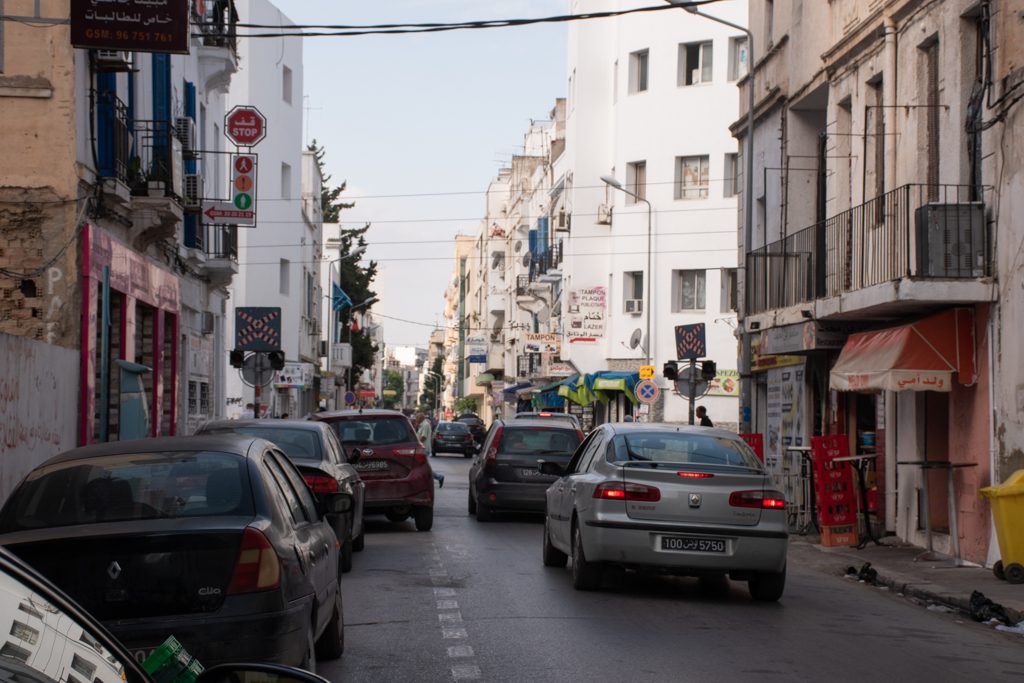
And cats. The number of stray cats here is astonishing.
The Tunisians are tolerant and even fond of the cats. They open doors for them and leave food in the street for them—a pile of corn on a newspaper or chunks of cheap lunch meat. They let the cats tear open and rummage through the heaps of bagged garbage.
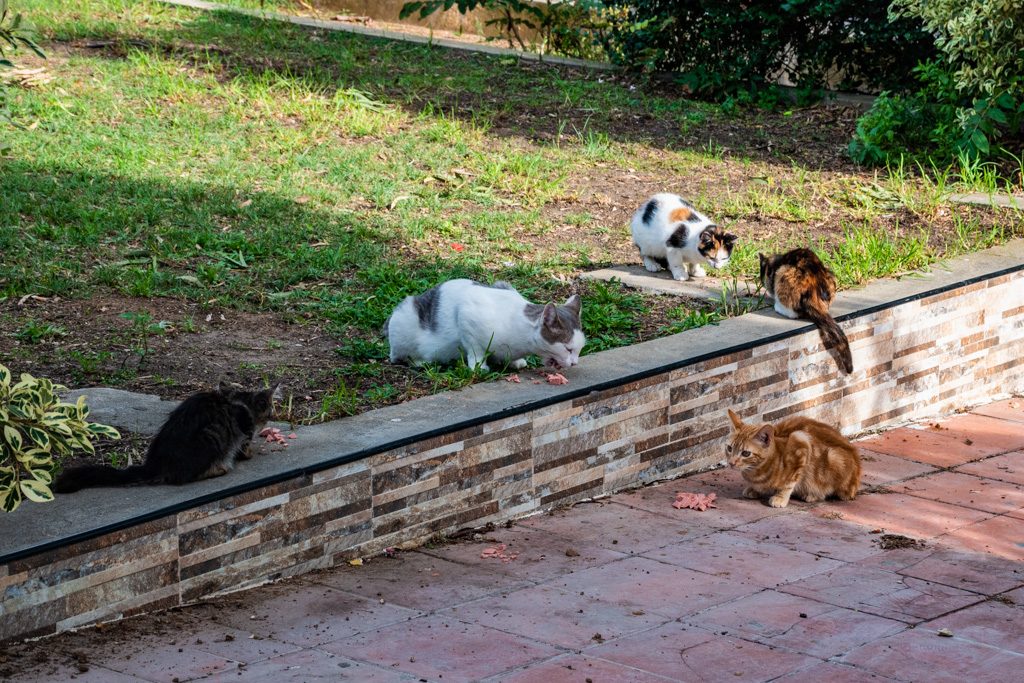
It broke my heart to see so many skinny cats. Most were young but there were a few senior ones that looked rough. For our dinner on our last evening, we ordered mixed grill, which is mostly cuts of meat. I slipped chunks of steak into a napkin in my purse. On our walk back to the hotel, I looked for the scrawnier kitties and tossed them morsels of the highest-quality protein they’ve ever had, assuming they’ve never had a mouse.
Fashion and Culture
Whenever I travel in cities, I like to dress modestly, for respectfulness and sun protection, and stylishly feminine. On the first day, I chose a long-sleeve top, and a medium-length skirt. All was fine until I tried to go into the courtyard of the Zitouna Mosque. The man sitting next to the door yelled sharply and pointed at my skirt. Legs must be covered!
That’s when I noticed that every woman and girl was wearing either long slacks or a long skirt. I saw plenty of young women wearing skin-tight jeans. But among the thousands of women over the five days, I only ever saw three women wearing dresses.
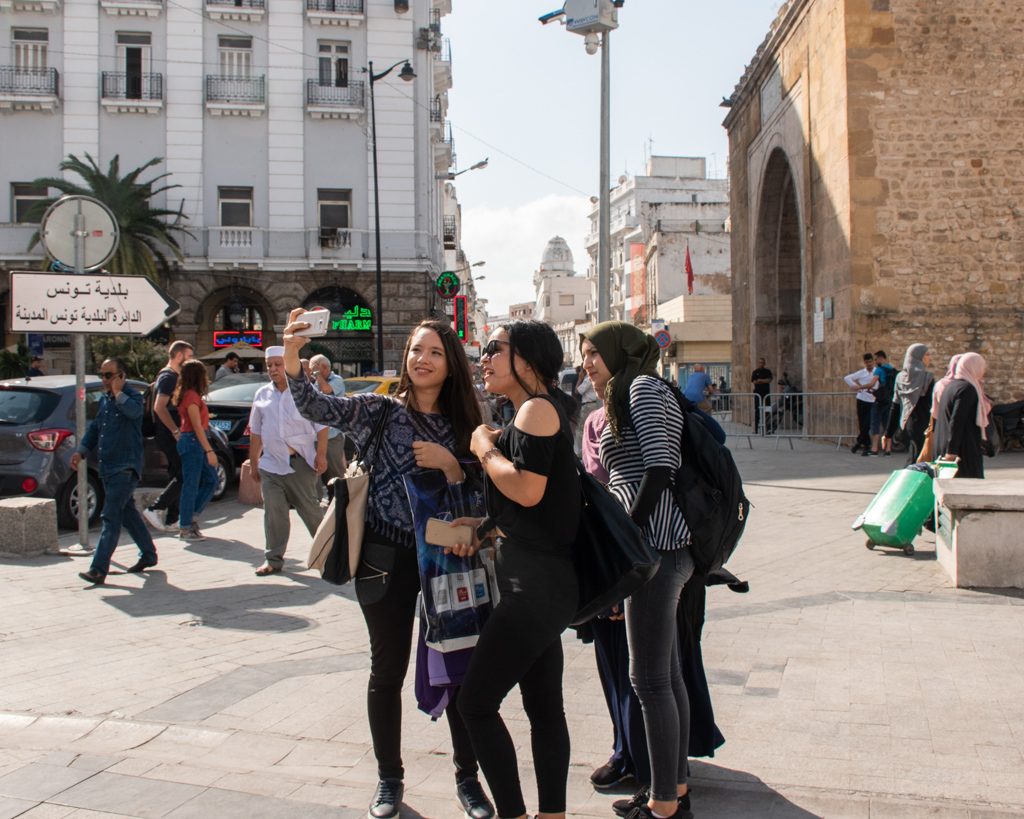
Here’s a sartorial moment that I’ll never forget—a black niqab that ended at the shoulder, with a Barbie-pink top and slacks.
Women and men
I get an overwhelming feeling that the women all look out for each other. Traveling along on a crowded tram (and after I had switched to wearing jeans), they urged me to sit down. A young woman told me I should put my camera away—someone might try to steal it. Another time, an older woman asked me where I was going. She wanted to make sure I was on the right tram and that I knew where to get off.
It reminded me of a incident related by a Western woman who was traveling in an Arab country. She had some little mishap, and before she knew it, a group of women had formed a protective circle around her while she recovered. It feels like that here.
On the last evening, we were in a small crowd watching a street performance on Avenue Habib Bourguiba, a wide boulevard with the vibe of the Champs Elysée or Las Ramblas. I moved aside to allow another woman to stand next to me so that we could both watch the performance. As I turned to leave, she put her hand on my arm and smiled at me—a warm, parting gesture that you would normally reserve for a friend.
It’s not just women who exhibit this closeness. Earlier in the evening, Lee and I were walking along Rue Charles de Gaulle after visiting the markets, when an old man was coming the opposite way. As he passed by Lee, he gave him a big smile and a warm tap on the arm, like a gesture of “Glad to see you.” Later we realized that this area was hit by one of the suicide bombers in June. Could be a coincidence though.
During the day you don’t see many women unless they are workers or students, or on a shopping mission. In every neighborhood there are “Salons de Thé ”—hookah lounges that open into the street. As the only customers here are men, we didn’t go in because I felt that I would be out of place.
However, we did find a barista-style coffee shop that had plenty of women customers. Generally, it seems like gathering places are either women’s or men’s.
Helpfulness
Often, when we asked someone on a tram about directions, they would go so far as to follow us to make sure we were going the right way.
Language
The official languages are Arab (government) and French (commerce). We managed just fine with our basic high-school French. They speak it as slowly and with the same bad accent as us.
In other words, we understood each other perfectly.
Next time, I’ll tell you about shopping for Berber carpets.
